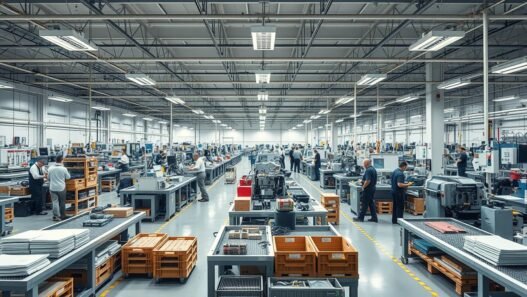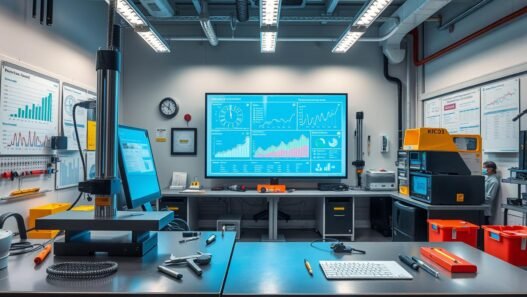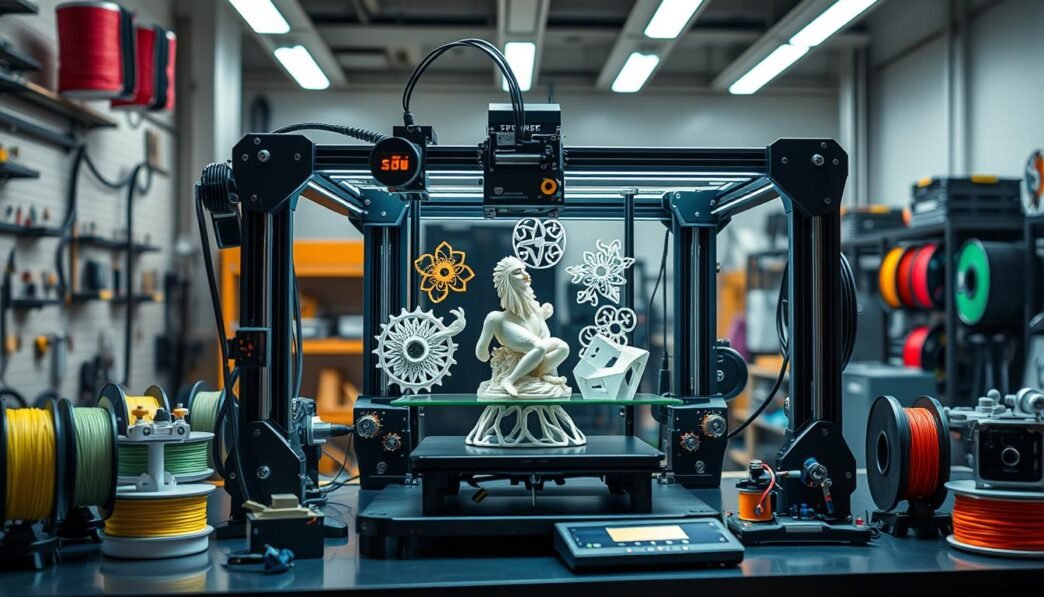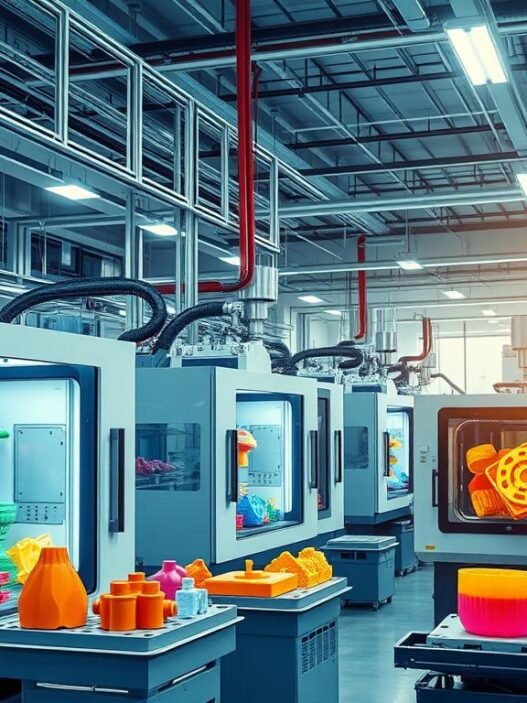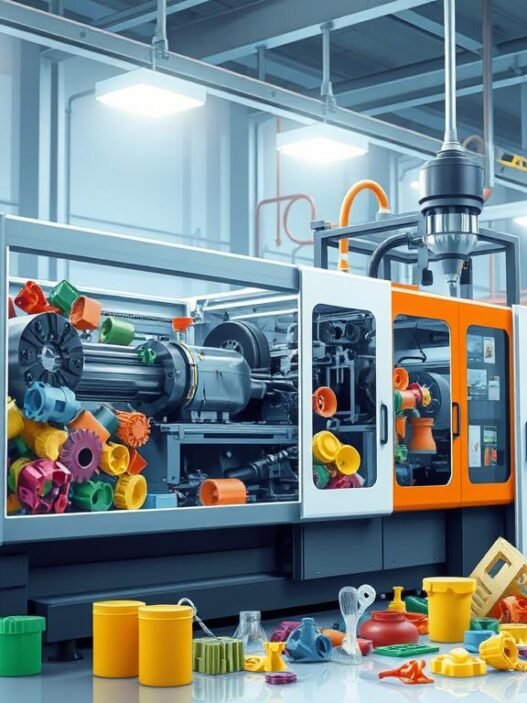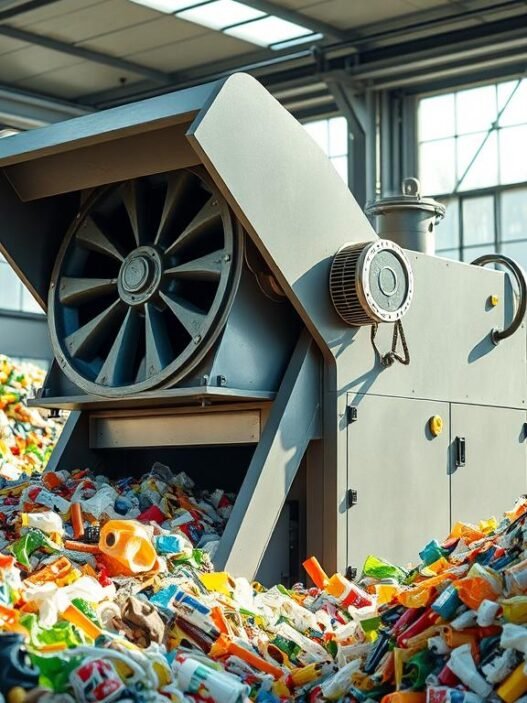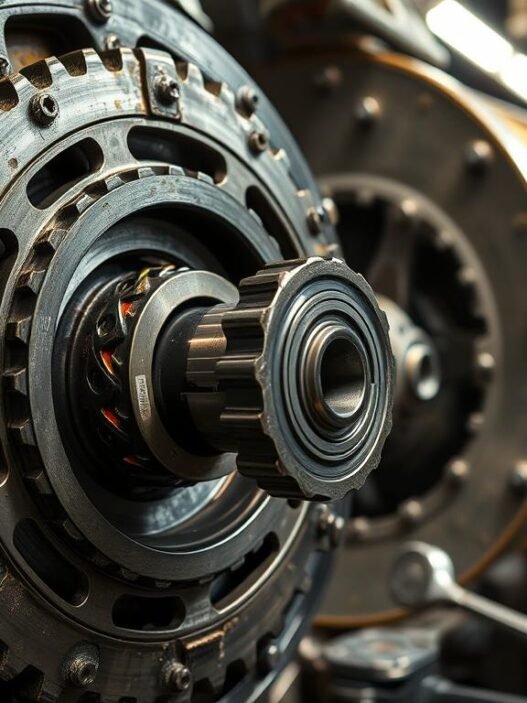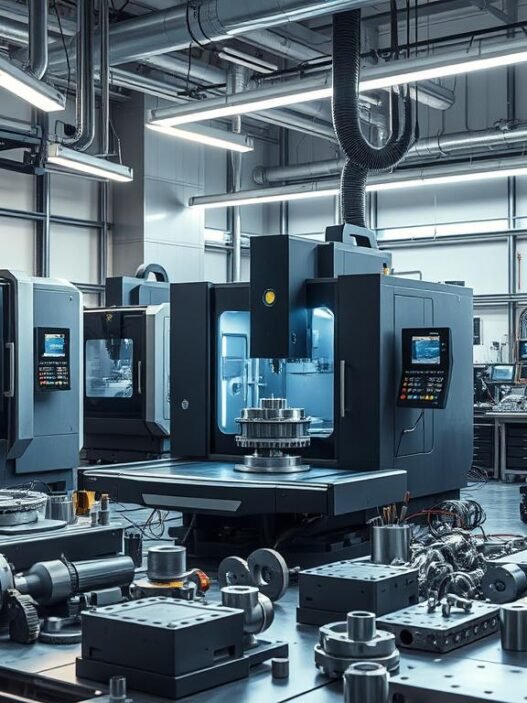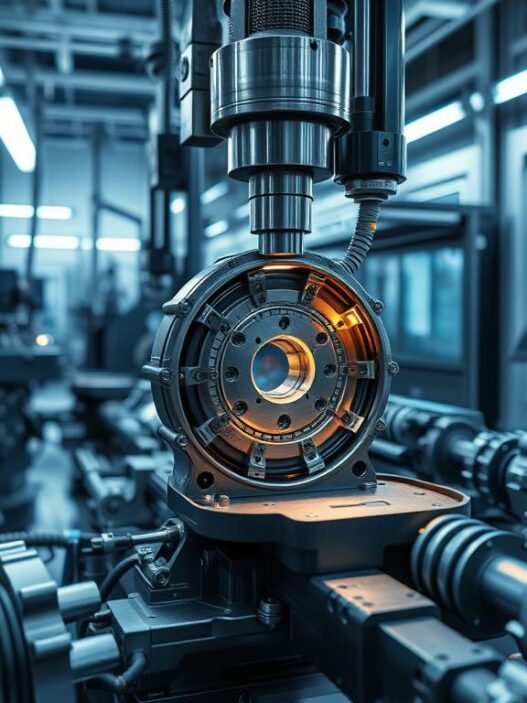Imagine a world where ideas turn into real things with just a click. Welcome to the amazing world of 3D printing. This tech is changing industries and giving power to people. It makes creating things easy and uses many materials.
But, have you thought, How far can this tech go, and how will it change our lives?
Key Takeaways
- 3D printing has grown from a fun tech to a big change maker in industries and for people.
- The future of 3D printing is full of endless chances for personal and business projects.
- It makes making copies and using different materials easy, leading to new ideas in many fields.
- 3D printing is easy to use, making tech available to more people to make their ideas real.
- 3D printing is making things cheaper, customizable, and easier to make, changing fields like healthcare and construction.
This article will show you the exciting world of 3D printing. We’ll see how it can change how we deal with the physical world. Get ready to be amazed by the future at your fingertips.
The Transformative Power of 3D Printing
3D printing is changing how we develop and innovate products. It lets us create ideas in ways we never thought possible. This technology is leading to faster prototyping and custom manufacturing.
Bringing Ideas to Life
With 3D printing, we can turn designs into real products quickly and accurately. It helps designers and engineers test and improve their ideas fast. This way, they can find the best solution quickly.
Revolutionizing Industries
3D printing is changing many fields, like engineering, architecture, fashion, and healthcare. In aerospace, it makes parts lighter and simpler, saving money and improving performance. In medicine, it creates custom prosthetics and implants, changing lives.
As 3D printing gets better, we’ll see even more amazing uses. It will change how we solve problems and design products.
“3D printing has the power to transform the way we think about manufacturing, allowing us to create custom, one-of-a-kind products that were once impossible to produce.”
| Industry | Impact of 3D Printing |
|---|---|
| Aerospace | Reduced weight and complexity, leading to cost savings and improved performance |
| Healthcare | Customized prosthetics and implants, transforming patient care |
| Engineering | Rapid prototyping and iterative design, accelerating product development |
| Architecture | Visualization of complex designs and models, streamlining the design process |
The future of 3D printing is limitless. It’s empowering innovation and changing industries. This technology is shaping the future of product development and problem-solving.
How 3D Printing is Redefining Accessibility
The world of 3D printing is now open to everyone, not just the elite. Affordable 3D printers and user-friendly 3D printing software have made it possible. This change lets people, hobbyists, and small businesses explore 3D printing and make their ideas real.
Affordable and Compact Printers
The cost of 3D printing has dropped a lot, making it more accessible. Now, affordable 3D printers are small and easy to get. This lets people and small businesses try 3D printing without spending a lot.
This has opened up new ways for personal projects, hobbies, and small manufacturing. It’s a big change for everyone.
User-Friendly Software and Interfaces
The software and interfaces for 3D printing have also improved a lot. They are now user-friendly. This means even beginners can start using 3D printing easily.
This ease of use has made 3D printing more accessible to many. It lets a wide range of people bring their ideas to life.
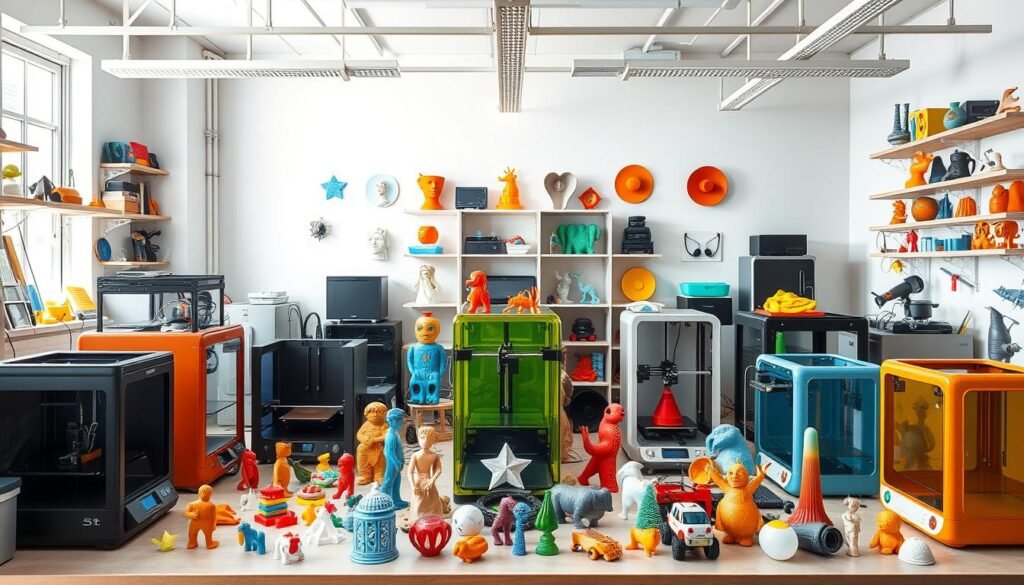
“The democratization of 3D printing technology has been a game-changer, enabling individuals and small businesses to access this revolutionary tool and unleash their creativity.”
The mix of affordable 3D printers and user-friendly software has made 3D printing more accessible. This change can inspire new ideas, help start-ups, and let people make their dreams real.
The Concept of Instant Replication
The future of 3D printing is getting easier and more accessible. “Instant replication” makes 3D printing simple, without needing complex software. Now, anyone can make exact copies of objects easily.
Capture the Object
To start, you just need to take a photo of the object you want to copy. This 3D scan captures the object’s shape and details. Then, you can use this digital version in 3D printing software.
Take Measurements
Next, you measure the object carefully. This ensures the 3D print will match the original perfectly. The measurements are added to the digital model.
Import and Print
Finally, you import the data into 3D printing software. This step is easy, thanks to instant replication. You can then print the replica using various 3D printing methods.
This new approach could change the 3D printing world. It makes the technology more available and opens up new creative paths. Instant replication makes it easier for people and businesses to turn their ideas into reality.
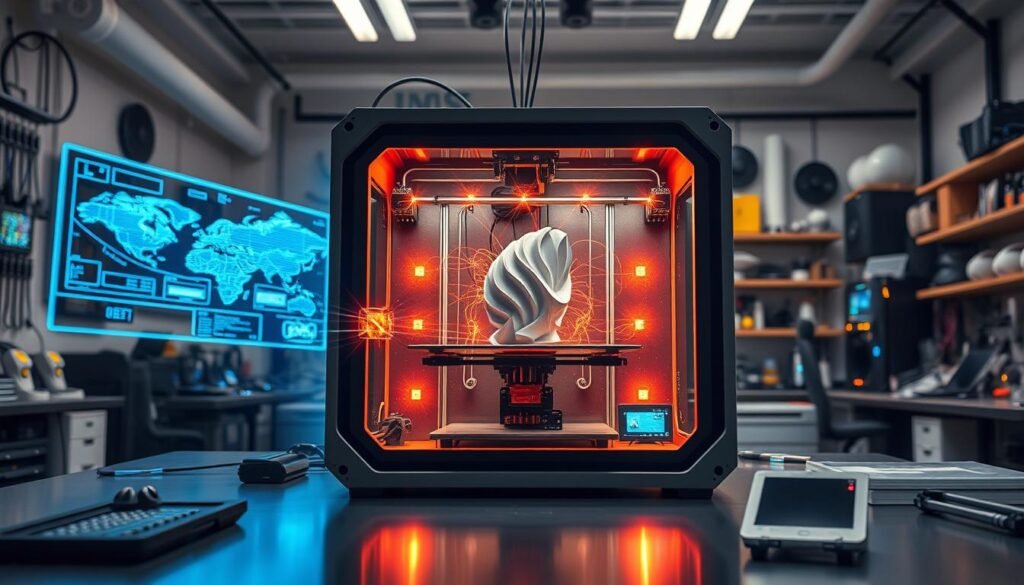
| 3D Printing Technology | Description |
|---|---|
| Fused Deposition Modeling (FDM) | A technique that uses a thermoplastic filament, which is melted and extruded layer by layer to build up a 3D object. |
| Stereolithography (SLA) | A process that uses a UV laser to selectively cure and solidify a photosensitive liquid resin, layer by layer, to create a 3D object. |
| Selective Laser Sintering (SLS) | A technology that uses a high-powered laser to fuse small particles of plastic, metal, or ceramic powders into a 3D object. |
| Digital Light Projector (DLP) Printing | A resin-based 3D printing process that uses a UV light projector to cure liquid resin, layer by layer, to construct a 3D object. |
3D Printing for Personal Projects
3D printing has made creativity accessible to all. Hobbyists, DIY fans, and regular people can now make their ideas real. You can print custom phone cases, home decor, tools, and unique gadgets.
Think about making a whistle that can make 118 decibels of sound or a strong carabiner for 30 kilograms. 3D printing lets you solve everyday problems with personalized solutions. For example, a measuring cube can replace 72 measuring spoons.
3D printing also lets you show off your artistic side. You can make small catapults that shoot up to two meters or create musical instruments in hours. The creative options are endless with 3D printing.
| 3D Printing Project | Key Details |
|---|---|
| Customized Whistle | Produces a sound of 118 decibels |
| Durable Carabiner | Can withstand up to 30 kg of weight |
| Measuring Cube | Replaces 72 individual measuring spoons |
| Small Catapult | Fires projectiles up to 2 meters |
| Homemade Musical Instrument | Can be created in a small amount of time |
3D printing has given people the power to be creative and solve problems in new ways. Whether you’re into hobbies, DIY, or just want to be creative, 3D printing is a vast playground for your ideas.
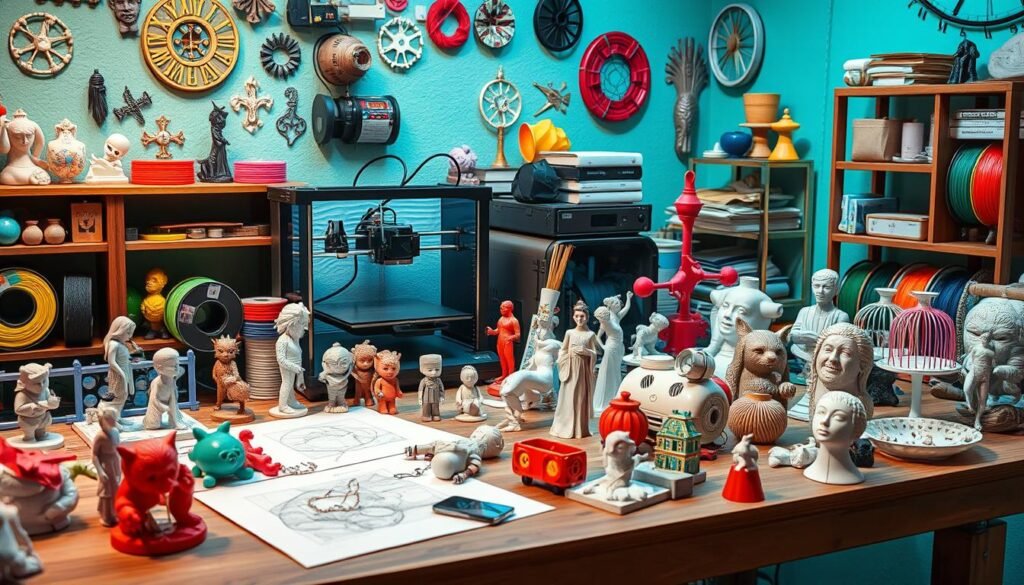
“3D printing has truly democratized creativity, empowering hobbyists, DIY enthusiasts, and everyday consumers to bring their unique ideas to life.”
3D Printing for Businesses
In today’s fast world, 3D printing is changing how companies make things. It’s making prototyping, product development, and custom manufacturing faster and easier. This tech lets businesses quickly turn ideas into real things, making work smoother and encouraging new ideas.
Prototyping and Product Development
3D printing is a big help for businesses. It lets them make real models and test designs fast. This way, companies can make prototypes quickly, saving time and money.
They can then improve their products and make smart choices before making lots of them. This makes their work more efficient and effective.
Custom Manufacturing Solutions
3D printing also lets businesses make custom items on demand. They can make special tools, fixtures, and parts just for them. This means they can make things with great precision and flexibility.
It helps them manage their stock better and make their supply chains smoother. By using 3D printing, companies can stay ahead and meet market needs quickly.
The use of 3D printing in business is growing fast. The global market is expected to hit $41 billion by 2026. As more businesses see its value, 3D printing will keep changing how we make products and solve custom problems.
“3D printing has revolutionized the way we approach product development and manufacturing. It has granted us the ability to rapidly iterate on our designs, test new concepts, and create customized solutions that cater to our customers’ unique needs.”
– Jane Doe, Director of Product Development at XYZ Corporation
3D Printing in Education
3D printing in education is changing how students learn. It brings creativity and innovation into the classroom. Schools and universities are using it for hands-on learning.
Fostering Creativity and Innovation
Students can design and make their ideas real with 3D printing. They learn to solve problems and think critically. It prepares them for a future in STEM education.
Engaging Hands-On Learning
More schools are using 3D printing. Students love making 3D printed objects, like things with celebrities’ faces. It makes learning fun and engaging.
3D printing is used in many subjects, not just social studies. Students can design everything from light bridges to tools for people with disabilities. It sparks their curiosity and passion.
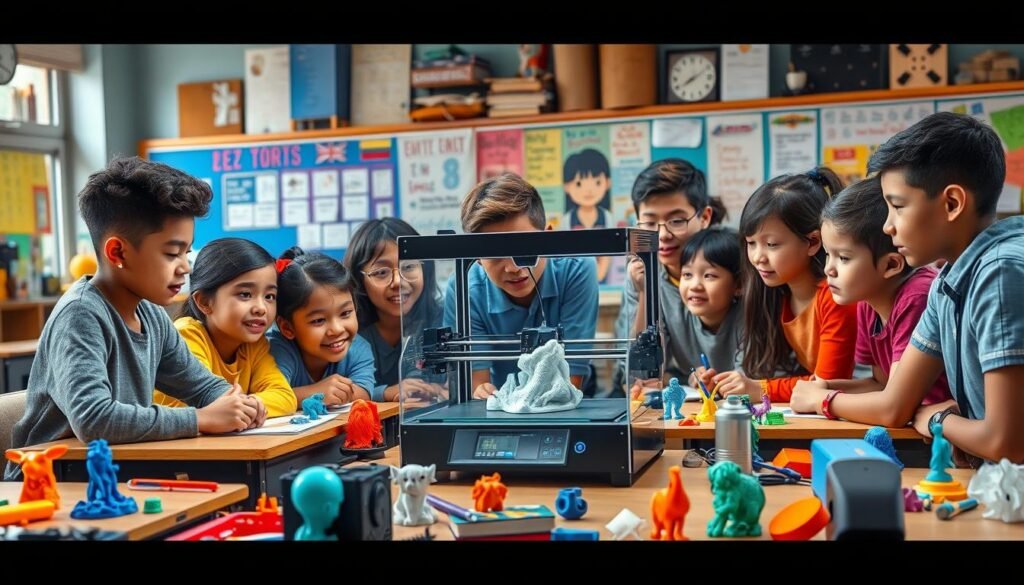
As 3D printers get cheaper, more schools will use them. 3D printing in education is making learning more interactive. It’s preparing students for a future filled with creativity, innovation, and hands-on learning.
The Future Landscape of 3D Printing
The future of 3D printing looks bright, with easier and more accessible technology. Imagine being able to capture an object and print a perfect copy instantly. This “instant replication” could change how we use 3D printing. Also, new materials like durable plastics and composites are opening up more creative and practical uses.
Simplified Replication Process
Experts say we’re entering a golden era for 3D printing. It will become more common and useful in many fields. Automation and AI will make the process smoother, from start to finish. This means more people and businesses can easily turn their ideas into reality.
Versatile Material Usage
New materials are key to 3D printing’s future. We’ll see better composite and biocompatible materials, and more efficient printing. This will help make bigger models and encourage more industries to use 3D printing. The rise of multi-material printing will open up new possibilities in manufacturing.
As 3D printing evolves, it will become a bigger part of our lives. It will help people, businesses, and industries create and innovate. The future of 3D printing is all about making things simpler, more versatile, and accessible. This will make it easier for our ideas to become real.
| Trend | Description |
|---|---|
| Automation in 3D Printing | Increased focus on end-to-end workflow automation and integration of AI for design optimization |
| Material Innovation | Advancements in composite materials, biocompatible materials, and efficient printing technologies |
| Sustainability in 3D Printing | Efforts to reduce waste, promote circular economy principles, and utilize eco-friendly materials |
| Expanded Applications | Growth in consumer and industrial use, including medical applications and integration with traditional manufacturing |
“The future landscape of 3D printing is one of simplicity, versatility, and accessibility, paving the way for a world where our ideas can come to life with greater ease and precision.”
3D Printing and Sustainability
As we become more aware of our environmental impact, 3D printing is seen as a key technology for sustainability. It changes how we make and use physical things. It also helps in reducing the carbon footprint of old manufacturing ways.
3D printing is great for cutting down waste. It uses less material than traditional methods because it builds objects layer by layer. This means it can make new products from recycled materials, like plastics and metals, without needing new raw materials.
It also makes supply chains and logistics more efficient. This reduces the carbon emissions from shipping and transportation. By making things on demand, 3D printing cuts down on the need for big batches and long-distance shipping.
Many companies are starting to use 3D printing for their green goals. For example, Vestas, a wind turbine maker, wants to be carbon neutral by 2030. They plan to use 3D printing and digital files to cut down on waste and emissions from shipping.
“By 2050, 3D printing could save up to 90% of the raw materials required for manufacturing, according to a European Commission study.”
3D printing can also change the construction industry, which is big on waste. It can cut waste in construction by up to 30%. This helps keep materials out of landfills and makes buildings more sustainable.
In our quest for a greener future, 3D printing is a game-changer. It helps reduce waste, saves resources, and lowers the environmental impact of making and building things. By adopting the circular economy and additive manufacturing, we can all help make the world a better place.
3D Printing in Healthcare
The healthcare industry is leading the way in 3D printing innovation. It’s changing how doctors care for patients. This includes making custom prosthetic limbs and advancing bioprinting, where living tissue is printed.
3D printing makes medical devices that are tailored to each patient. It also holds promise for printing organs in the future. This could greatly improve patients’ lives.
Software like Simpleware has FDA clearance and CE marking. It helps create custom images for various medical needs. This technology is making healthcare more personalized and effective.
3D printing is making surgeries shorter and less complicated. It’s improving patient care and saving money. This technology is changing healthcare, one solution at a time.

